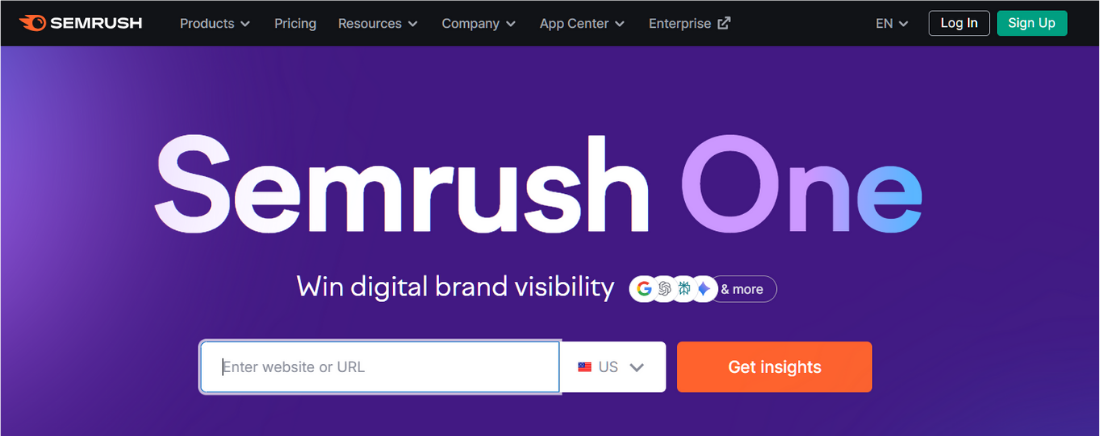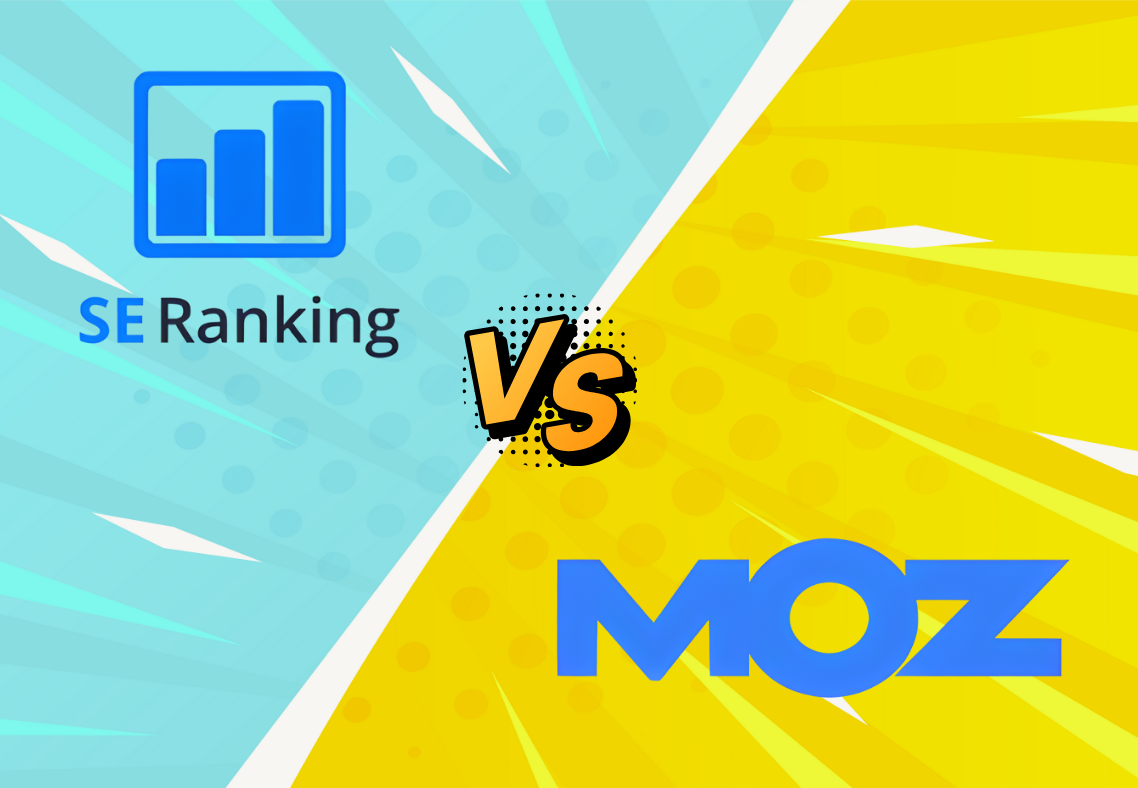In 2025, SEO success depends on spotting the right keyword trend before it peaks.
With Google’s algorithms becoming smarter and more intent-focused, choosing the right keywords and the proper keyword research tool can be the difference between ranking on page one and getting lost in search results.
A powerful keyword research tool not only uncovers what people are searching for but also shows you competition levels, traffic potential, and content opportunities.
In this guide, we’ll cover the best keyword research tools in 2025, their features, pros and cons, and how to use them effectively to drive Search engine performance.
What Is Keyword Research & Why Is It Important?

Keyword research is the process of discovering and analyzing the search terms people enter into Google or other search engines.
It usually starts with a seed keyword that represents your core topic, which you can expand into variations and long-tail opportunities.
There are several effective ways to use keywords, from titles and headings to meta descriptions and content body, ensuring targeted content that aligns with user intent and ranks for relevant queries.
Effective Ways to Use Keywords in SEO
If you want to rank without keyword research, you’re essentially creating content unquestioningly.
With it, you can:
- Identify primary keywords (main focus terms)
- Find secondary and long-tail keywords that expand visibility
- Understand the user’s search intent
- Track performance and adjust strategy over time
Note: “Always start with a specific keyword that reflects your main topic, then expand into variations.”
Best Keyword Research Tools in 2025
Keyword research tools give more than just volume data; they also provide insights into trends, CPC, and SERP competition. The following list highlights the most useful tools that SEO professionals rely on in 2025.
There are many tools on the market, but only a few stand out for accuracy, usability, and SEO research power.
If you are looking for the best keyword tool, here’s our carefully curated list of the top keyword research tools in 2025, including features, pros, cons, use cases, and best plans.
1. Finding the Right Keywords with Google Keyword Planner

Free keyword tool by Google. To use the free tools like Keyword Planner, you must create a Google Ads account. This tool is free to anyone with a Google Ads account, making it one of the easiest starting points for keyword research.
When you enter a keyword into the planner, it generates related keyword ideas, search volumes, and CPC insights to guide your strategy
- Key Features: Discover new keyword ideas, Search volume data, keyword suggestions, and CPC insights.
- Pros: 100% free, direct from Google, reliable keyword database.
- Cons: Limited detail, primarily designed for ads, rather than in-depth SEO.
- Best For: Beginners and anyone on a budget.
- Plan: One of the best free tools with a Google Ads account.
2. SEMrush is an advanced keyword research tool

Keyword Magic Tool is SEMrush’s dedicated keyword research tool designed to help you find thousands of keyword ideas in seconds. Inside Keyword Magic, click any keyword to see the full Keyword Overview, SERP features, variations, and intent signals.
- Key Features: Keyword gap analysis, competitive research, and content ideas.
- Pros: Huge database, great for competitor keyword research, and strong reporting
- Cons: Expensive for small businesses.
- Best For: Agencies, enterprises, and competitive niches.
- Plan: Paid plans start at around $129.95/month, with a 14-day free trial for Pro and Guru plans.
3. Analyzing Keyword Difficulty with Ahrefs Keyword Explorer

Known for its large database of keywords and its ability to analyze backlinks.
- Key Features: Keyword difficulty assessment, SERP analysis, and traffic potential insights.
- Pros: Delivers accurate keyword data and robust competitor keyword research.
- Cons: Premium pricing may be a barrier for some users.
- Best For: SEO professionals seeking comprehensive keyword research tools.
- Plan: Starts at $99/month; no permanent free plan is available, but it offers a variety of limited free tools.
4. Ubersuggest as a Budget-Friendly Keyword Tool

Affordable keyword tool by Neil Patel.
- Key Features: Related Keyword ideas, traffic analyzer, and content suggestions.
- Pros: Easy to use, budget-friendly, includes a free tier.
- Cons: Limited compared to SEMrush/Ahrefs.
- Best For: Beginners and small businesses.
- Plan: Offers a free version with limited search capabilities, and unlocks additional keywords with paid plans starting at $12/month.
5. Moz Keyword Explorer is a user-friendly tool

User-friendly tool for keyword research and keyword difficulty tracking.
- Key Features: Priority score, SERP analysis, keyword suggestions.
- Pros: Clean interface, excellent for analyzing keyword difficulty.
- Cons: The Database is smaller than SEMrush or Ahrefs.
- Best For: Bloggers and small teams.
- Plan: Paid plans start at $99/month with a 7-day free trial.
6. Why SE Ranking Is the Best Free Keyword Research Tool Alternative

SEO tool with powerful keyword research features.
- Key Features: A tool that shows keyword info, keyword difficulty, and new keyword ideas.
- Pros: Offers a free plan, easy-to-use interface, and supports competitor keyword research.
- Cons: Some advanced features need paid plans.
- Best For: Digital marketers and SEO professionals looking for the best keyword research tool in 2025.
- Plan: Free plan available; Pro from $5.75/month with 14-day trial
7. LowFruits is a content-driven keyword tool

A content-driven keyword tool with semantic SEO features, designed to streamline SEO tasks
- Key Features: Content editor, keyword clusters, SERP analyzer.
- Pros: Focuses on content optimization, powered by AI.
- Cons: Can get expensive.
- Best For: Content creators and marketers.
- Plan: Paid plans start at $89/month with a 7-day trial option.
8. SpyFu for the best long-tail keyword ideas

Great for generating long-tail keyword ideas, using this tool allows you to uncover hidden opportunities for keyword research in 2025.
- Key Features: Provides keyword data from Google Ads, competitor keyword research, and Google Search Console. SpyFu surfaces keywords your competitors bid on or rank for across Google Ads and organic results, helping you spot profitable gaps fast
- Pros: Excellent for discovering the right keywords and keyword opportunities.
- Cons: May require a paid plan for full access to powerful keyword research features.
- Best For: SEO professionals and marketers looking for the best keyword research tools in 2025.
- Plans start at competitive rates, Users can try it free to see its features.
9. AnswerThePublic for finding questions related to the keywords

The Visual Keyword tool helps you find questions related to your keywords, topics, and queries. Toggle the Questions, Prepositions, and Comparisons views to get more keyword angles for content briefs and FAQs.
- Key Features: Search data visualization, question-based keywords.
- Pros: Excellent for content ideation, very intuitive.
- Cons: Limited free searches per day.
- Best For: Bloggers, content marketers.
- Plan: Offers a free version of AnswerThePublic with limited daily searches; paid plans start at $99/month. Its free plan is simple and free to use for a few searches each day, making it a great tool for quick keyword brainstorming before upgrading to a paid tier.
10. Using SEO AI tools in Modern Keyword Search

SEO AI tools, such as ChatGPT, offer powerful keyword research capabilities, enabling the discovery of optimal keyword ideas and the optimization of content strategies.
- Key Features: Keyword suggestion, long-tail keyword exploration, and keyword difficulty analysis.
- Pros: Fast keyword searches, integration with Google Search Console for accurate keyword data.
- Cons: Some tools require a paid plan for full access to features.
- Best For: Comprehensive keyword research and competitor keyword analysis.
- Plan: Many tools offer a free version or a 14-day free trial, with premium plans varying in cost.
11. Google Search Console is a free SEO tool

Google Search Console is a powerful SEO tool that assists users in keyword research and analysis, making it an essential resource for optimizing website performance in 2025.
- Key Features:
- Keyword overview tool for tracking target keywords.
- Keyword difficulty analysis to identify competitive keywords.
- Integration with Google Ads for comprehensive keyword data.
- Pros:
- Offers a free version with valuable keyword insights.
- Access to keyword opportunities and related keyword ideas.
- User-friendly interface for easy navigation and analysis.
- Cons:
- The free plan gives fewer features than the paid ones.
- May require a Google Ads account for full functionality.
- Best For: Competitor keyword research and discovering new keyword ideas to enhance your keyword strategy.
- Plan: Google Search Console is a completely free tool to use, offering a variety of features for effective keyword research without requiring a paid plan.
The best keyword research tools used in 2025 make it easy to use, check monthly search volume, and even integrate with Google Ads.
Choosing the best tool for keyword research in 2025 helps you target the right keywords on Google, which is the key to SEO success.
Many of the tools offer both free and paid plans, along with a free trial, making the process easier. Use these tools regularly to refine your keyword strategy.
Free vs Paid SEO Tools for Keyword Research: Which One Should You Choose?

Choosing the Best Free Keyword Research Tools for Beginners
- Free Tools (Google Keyword Planner, AnswerThePublic) are valuable tools to help start, but often lack deep competition or performance analysis, with limited keyword searches per day. For quick ideation on a budget, use the keyword planner to expand seed terms into actionable lists you can export.
Why a Keyword Research Tool for Paid Plans Delivers More Insights
- Paid Tools (SEMrush, Ahrefs, Surfer SEO) are excellent resources to provide accurate SEO metrics, including detailed keyword data, keyword opportunities, competitor analysis, and advanced features crucial for scaling.
For beginners, free tools are fine.
For serious growth, paid tools deliver better long-term performance.
Use a mix of both free and paid tools. Start with the best free keyword research tools to define your primary keyword, then leverage paid tools for secondary keyword research, competitor analysis, and long-term tracking.
If one tool doesn’t meet your needs, try another tool for deeper insights.
Key Features to Look for in a Keyword Research Tool (2025 Edition) to match the search intent
Not all keyword research tools available are created equal. Before choosing one, consider these key metrics related to keywords.
- Accurate Search Volume & Competition Data
Helps you target keywords with real traffic potential and avoid wasted effort. - Support for Long-Tail and Semantic Keywords
Google’s algorithms love context and variety. Tools that suggest related terms help you cover topics comprehensively. Prioritize platforms that surface a variety of keyword ideas across head, mid-tail, and long-tail - Integration with Google Tools
A seamless connection with great tools like Google Keyword Planner, Google Search Console (GSC), and Analytics, as well as Google Trends, is crucial for obtaining accurate keyword insights. - Performance Tracking
Monitoring keyword rankings, clicks, and conversions helps you refine your strategy. - User-Friendly Interface + AI Support
In 2025, AI-powered insights make keyword discovery faster and smarter.
Comparison Table: Best Keyword Research Tools in 2025
| Tool | Free/Paid | Best Feature | Ideal For | Performance Strength |
|---|---|---|---|---|
| Google Keyword Planner | Free | Reliable Google data | Beginners | Basic but accurate |
| SEMrush | Trial (7 Days) / Paid | Competitive insights | Agencies, Enterprises | Excellent, all-in-one |
| Ahrefs | Trial (7 Days) / Paid | Keyword difficulty + backlinks | SEO Professionals | Strong database |
| Ubersuggest | Trial (7 Days) / Paid | Affordable, easy to use | Small Businesses, Bloggers | Good for budget SEO |
| Moz Keyword Explorer | Trial (7 Days) / Paid | Keyword difficulty tracking | Bloggers, Small Teams | Reliable but smaller DB |
| SE Ranking | Trial (14 Days) / Paid | In-depth analytics and competitor insights | Beginners, Small Businesses, and SEO Professionals | Excellent, all-in-one |
| LowFruits | Paid | Keyword Difficulty Analysis | Identifying low-competition keywords | High accuracy in keyword suggestions |
| SpyFu | Paid | Competitor Keyword Insights | Analyzing competitor strategies | Comprehensive competitor analysis |
| AnswerThePublic | Free / Paid | User’s question insights | Content Marketers | Great for ideation |
| SEO AI Tools (Such as ChatGPT) | Free / Paid | Keyword clustering + expansion | All Users | Fast but needs a data link |
| Google Search Console | Free | Performance Reporting | Monitoring website performance | Direct data from Google search |
How to Use the Keyword Research Tools Effectively
Using the right keyword research strategy helps you optimize your content, enhance search engine optimization (SEO), and maintain a user-focused approach.
As a first pass, plug your primary keyword into Google to review SERP intent, featured snippets, and competing pages you’ll need to beat.
Many tools for keyword research available in 2025 offer both free and paid plans with a free trial, making the process easier. Additionally, you can check out our step-by-step guide for keyword research using free or paid SEO tools.
FAQs:
Q1) Which tool is best for better on-page SEO performance?
Ans: Tools like Rank Math, SEMrush, and Surfer SEO are excellent for improving on-page SEO performance. They guide you in keyword placement and content optimization, and many even let you use AI to refine on-page elements more efficiently.
Q2) Which are the free keyword research tools on the market?
Ans: Some of the best free keyword research tools include Google Keyword Planner, Ubersuggest, and Answer the Public. Each of these tools offers a free version to help you get started, and Google Keyword Planner is an entirely free tool. These are practical tools you can use right away without any upfront cost.
Q3) Are free keyword research tools for SEO in 2025 enough?
Ans: Free keyword research tools are a great starting point for beginners, offering features like search volume data, keyword suggestions, and fundamental competition insights at no cost.
But serious SEO requires a paid service that includes a keyword overview tool that shows search volume, difficulty, CPC, and competitive density in one place.”
Q4) Can secondary keywords really drive traffic?
Ans: Yes. Secondary keywords target long-tail queries with less competition, driving focused traffic and supporting your primary keyword.
Q5) Which tool integrates best with Google?
Ans: Google Keyword Planner (direct from Google) and Google Search Console are best for raw data. SEMrush and Ahrefs also integrate with Google Analytics and include features such as a keyword gap tool for in-depth performance insights.
Q6) Can I do keyword research outside of Google tools?
Ans: Yes. There are many keyword research tools outside of Google, such as SEMrush, Ahrefs, Ubersuggest, and many AI tools. You can also explore keyword ideas from Bing search trends or community-driven platforms like Reddit.
These tools and sources provide additional metrics, such as keyword difficulty, keyword overview, competitor tracking, and content gap analysis, that Google’s free tools (which may require a Google account) don’t fully cover.
Q7) How do I choose the right tool for my needs?
Ans: To choose the right keyword research tool for your needs, consider factors such as your budget, the specific features you require, user-friendliness, and the tool’s ability to provide comprehensive data relevant to your niche.








